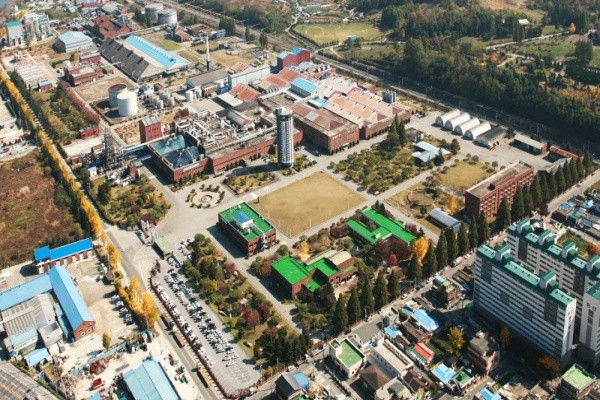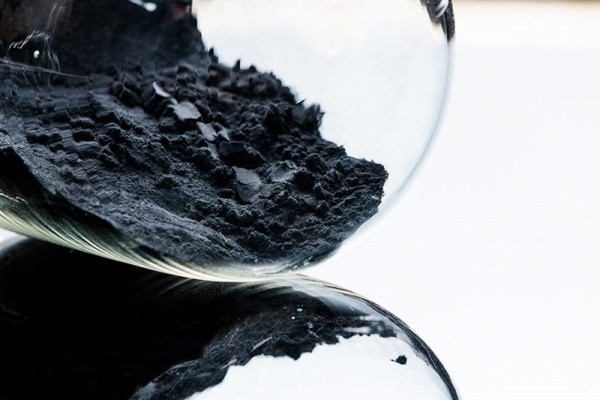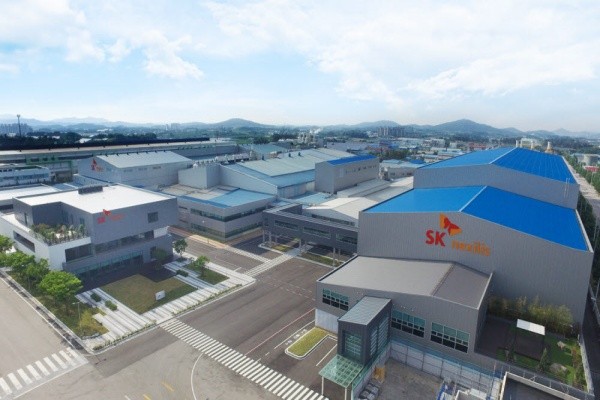Market for materials that are used for rechargeable batteries has emerged as a battlefield for major South Korean corporations. As the rechargeable battery market has been growing at a rapid rate due to popularization of electric vehicles, many major South Korean companies have been trying to promote their battery materials businesses as a growth engine for the future. Many of these companies are either trying to create synergy by combining their battery materials businesses with other existing businesses or pushing for M&A, joint venture, or equity investment.

According to the industry on Monday, it has been reported that GS Group is looking to launch its own rechargeable battery materials business. Chairman Heo Tae-soo of GS Group recently visited COSMO Advanced Materials, a South Korean cathode materials manufacturer, and discussed about a potential cooperation.
Although detailed information about the discussion is not made public, there is a chance that the two companies will plan on M&A or joint venture. Because top executives of the grouop such as President Hong Soon-ki of GS Holdings and President Heo Sae-hong of GS Caltex were also at the meeting, it is likely that the discussion was an in-depth discussion.
It is reported that the GS Group has been showing interest in rechargeable battery materials in order to launch new businesses. Because the group already operates energy and gas station businesses, it will not be much difficult for the group to provide every service from raw materials to final service.
During this year’s New Year’s address, Chairman Heo emphasized that the group needs to find opportunities in various fields such as mobility and pro-environment that are applied with digital technologies.
A representative from GS Group said that the group cannot confirm whether Chairman Heo actually visited COSMO Advanced Materials and what the purpose of the discussion was.

LG Group has begun vertical integration of companies related to rechargeable batteries. After separating LG Energy Solution from the group, it has begun expanding the battery materials business centered on LG Chem.
LG Chem is currently working on increasing its cathode materials production capacity and launching a separator film business at the same time. Along with cathode material, anode material, and electrolyte, separator film is one of the four key materials that make up a rechargeable battery. In particular, damaged separator film is directly linked to safety as it can potentially cause a fire.
LG Chem plans to acquire LG Electronics’ separator film coating business and it also plans to establish a joint venture for separator film with a well-known Japanese company in the second half this year. A vertical integration structure where LG Chem mass-produces separator films which are then supplied to LG Energy Solution will be established.
LG Chem said that while it is looking into joint venture or M&A in order to expand its battery materials business, it has yet to make any final decision.

SK Group has also been strengthening its battery materials business. The group, which acquired a copper film manufacturer called KCFT (currently SK Nexilis) through SKC, is currently pushing for additional M&As with cathode material and anode material manufacturers. It has been confirmed that the group already had discussions about M&A with few companies. Cathode material and anode material are two of the four key materials of a battery. Cathode material in particular occupies 30% of battery production cost, the group is pushing to internalize key battery materials in order to strengthen competitive edge of its battery business.
A representative from the industry who is familiar with the group’s situations said that SKC currently stands at the center of the group’s rechargeable battery materials business and is looking into acquiring companies that make cathode materials and anode materials.
The reason why these groups are working tirelessly to strengthen their battery materials businesses is because they know the potential of the electric vehicle battery materials market. Many major companies in South Korea jumped into related businesses in 2014 when the electric vehicle battery market just began to open up. However, many of them gave up on their businesses after they had been repeatedly making losses due to slow development of the market. In fact, the GS Group sold its cathode material business to LG Chem in 2016. However, it decided to launch related businesses once again as it sees growth of the electric vehicle and electric vehicle battery markets.
“It is likely that they felt an urgency to participate in the market as they believed that they could have fallen behind other companies if they did not.” said a representative from a market research company called Yano Research Institute. “There will be more active movements by companies that are looking to secure battery materials in order to provide competitive price for electric vehicle batteries.”
Short supply of electric vehicle batteries is expected due to a rapid growth of the electric vehicle market. A market research company called SNE Research predicted that demands for electric vehicles will exceed the supply by 7% starting from 2023 and that the gap will be even bigger in 2025. Because lack of batteries indicates lack of battery materials, competition between companies that are looking to grab an upper hand in key battery materials such as cathode material, anode material, and separator film is expected to become more intense.
Staff Reporter Yun, Geonil | benyun@etnews.com & Staff Reporter Kim, Jiwoong | jw0316@etnews.com